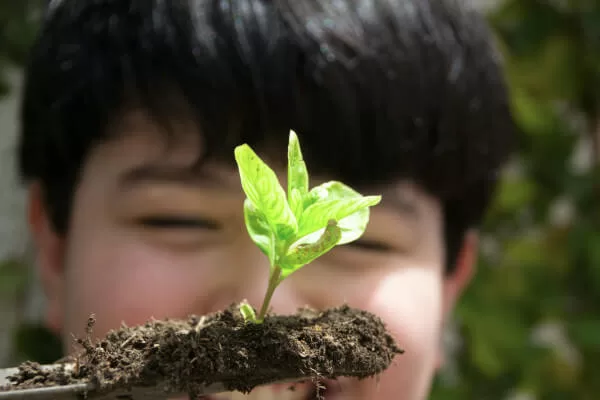Why Gardening Is Great for Kids – Hands-on Learning and Its Benefits
At Petite Luminaries Childcare, we believe in hands-on learning experiences that nurture curiosity, creativity, and responsibility. One of the best ways to achieve this is through gardening! Whether children are planting seeds, watering flowers, or harvesting vegetables, gardening provides valuable physical, emotional, and cognitive benefits that support early childhood development.
1. Encourages Sensory Exploration
Gardening is a full sensory experience—feeling the soil, smelling the flowers, hearing the rustle of leaves, and tasting fresh produce. These activities help young children strengthen their sensory awareness and build stronger cognitive connections with the world around them.
2. Teaches Responsibility & Patience
Caring for plants teaches children about commitment and patience. They learn that plants need sunlight, water, and time to grow. This understanding of cause and effect helps children develop a sense of responsibility as they nurture their plants each day.
3. Boosts Fine & Gross Motor Skills
From digging in the soil to picking vegetables, gardening strengthens fine motor skills (essential for writing and drawing) and gross motor skills (lifting, bending, and moving). These physical activities help children develop better hand-eye coordination and strengthen muscles through natural play.
4. Supports Emotional Well-Being
Spending time outdoors and engaging with nature has been proven to reduce stress and improve mood. Gardening provides a sense of accomplishment and builds confidence as children watch their plants bloom. It also fosters mindfulness by encouraging kids to slow down and appreciate their surroundings.
5. Promotes Healthy Eating Habits
Children are more likely to eat fruits and vegetables when they grow them themselves! Gardening encourages kids to explore new flavors and develop healthy eating habits while understanding where their food comes from.
6. Sparks Curiosity & Scientific Thinking
Gardening offers real-world science lessons—children learn about plant life cycles, the importance of sunlight and water, and even how insects help pollinate plants. These experiences nurture problem-solving skills and critical thinking as they observe changes and make connections between nature and the environment.
7. Encourages Teamwork & Social Skills
Gardening is a collaborative activity that teaches children teamwork, cooperation, and communication. Whether working with friends to plant seeds or taking turns watering, gardening fosters a sense of community and shared responsibility.
Bringing Gardening to Life at Petite Luminaries
At Petite Luminaries, we integrate gardening into our curriculum to create meaningful, hands-on learning experiences. From planting a small herb garden to growing flowers and vegetables, we encourage children to connect with nature and develop a lifelong appreciation for the environment.
 Let’s Grow Together!
Let’s Grow Together!
Gardening is more than just planting seeds—it’s about nurturing young minds and fostering a love for the world around us. Whether at daycare or at home, incorporating small gardening activities can have a big impact on your child’s development.




 Let’s Grow Together!
Let’s Grow Together!